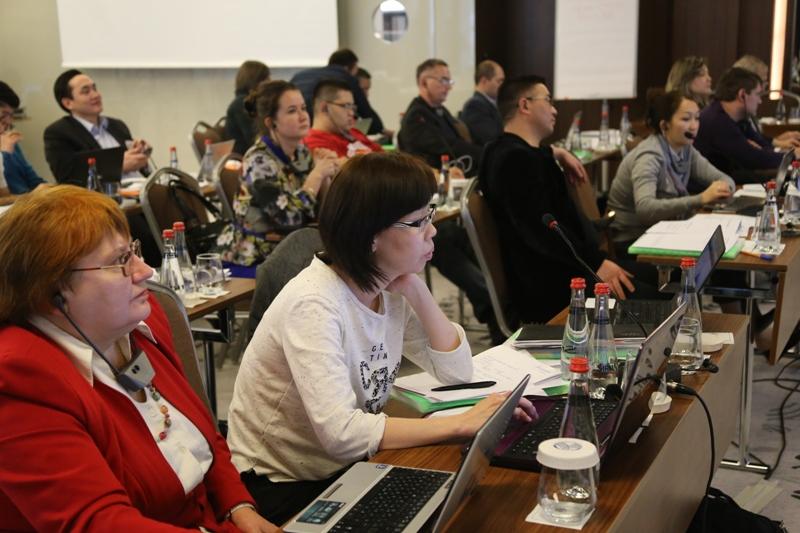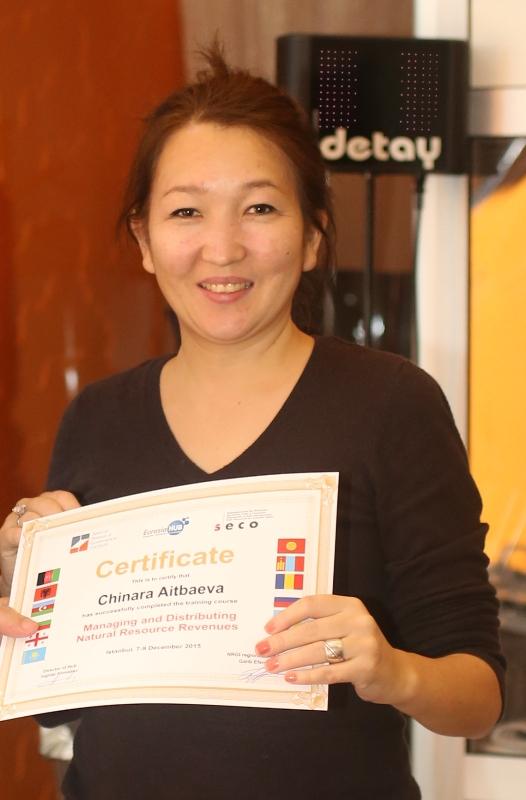
Eurasia Extractive Industries Knowledge Hub Aids EITI Multi-Stakeholder Progress in Kyrgyz Republic
Considered one of the more democratic countries in Central Asia, the Kyrgyz Republic is also one of the region’s most open economies. Although mainly reliant on foreign aid, transit trade and remittances, gold mining revenues are important to its budget. Good mining sector governance, therefore, is equally important going forward.
In 2014, mining contributed 10 percent of GDP, provided 50 percent of industrial production, 40 percent of exports and 3.2 percent of total employment, generating 8.4 percent of total government revenues. In the Kyrgyz Republic’s extractives sector, yellow metal production is king, accounting for 94.3 percent of the sector's production.
The Kumtor mine, operated by Centerra Gold, is the Kyrgyz Republic’s largest. And the country’s extractives space is growing: three other strategic gold mines are in production or development. The Kyrgyz Republic also has untapped iron ore, rare earths and non-ferrous metals deposits.
To build the sector, the Kyrgyz Republic must further develop a legal framework and fiscal regime. Environmental protection, social issues and revenue sharing also need to be addressed. There are serious problems with corruption and mismanagement as well.
The Extractive Industries Transparency Initiative (EITI) is part of the solution. The Kyrgyz Republic became an EITI-compliant country in 2011, the culmination of a six-year process. Right now the EITI covers 95 percent of extractive revenues in the country. In her role as member of the Kyrgyz EITI multi-stakeholder group and supervisory board, Our Century public union head Chinara Aytbaeyeva says that the country’s burgeoning extractive industry needs extensive reform to grow successfully and equitably.
NRGI’s Eurasia Extractive Industries Knowledge Hub’s workshops and trainings are also helping to equip Kyrgyz participants with knowledge and skills to effectively address resource governance issues. Aytbaeyeva participated in two trainings organized by the Eurasia hub: a revenue management course and a training of trainers course.
Chinara Aytbaeyeva, Our Century public union head
After becoming a multi-stakeholder group member, Aytbaeyeva outlined some takeaways:
NRGI: What’s the role of the Kyrgyz Republic’s EITI multi-stakeholder group in extractive industry transparency?
Chinara Aytbaeyeva: Fifteen people make up the multi-stakeholder group; five of them represent civil society. The group formulates work plan development, progress report development and task monitoring. It also approves terms of reference for an audit company and its selection. It reviews and approves EITI reports.
How does the recent Eurasia knowledge hub training apply to your work and experience?
I was part of working groups on building regional development funds formulated by extractive sector payments and sustainable development funds. One of the strategic directions for my organization is assisting sustainable development and budget policy in our country, and in these respects the hub straining were very useful. The skills I obtained at the training-of-trainers workshop will add value to our own future trainings and make them more professional.
How could the training help you in your new role in the multi-stakeholder group and advisory board?
The knowledge and skills I gained were very useful and I am sure played a role in my selection to the EITI group in Kyrgyzstan. I’m now much more qualified to function as member of supervisory board of EITI, and to collaborate with the local and international EITI secretariats. The latter is very important: Kyrgyzstan has faced particular problems with the implementation of EITI. Thanks to my experiences in the hub training courses, I can deliver on problems that our country faces, make suggestions to address them throughout the EITI workplan, and also analyze relevant legislation on extractives in my country.
Fidan Bagirova is the Eurasia senior officer with the Natural Resource Governance Institute. Nazgul Kulova is a consultant for NRGI in the Kyrgyz Republic.
Authors

Fidan Bagirova
Eurasia Senior Officer


